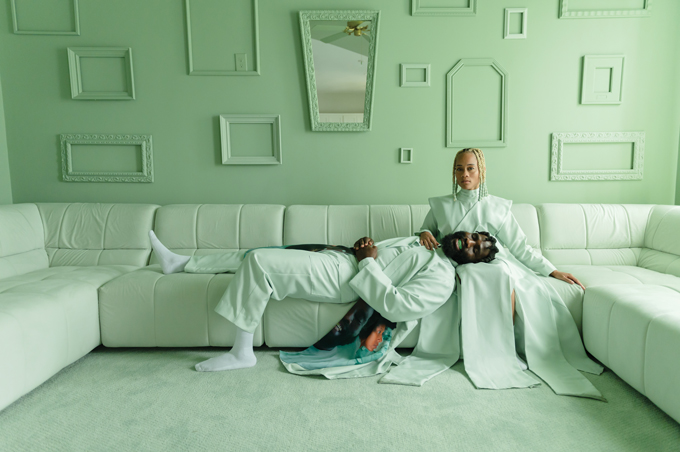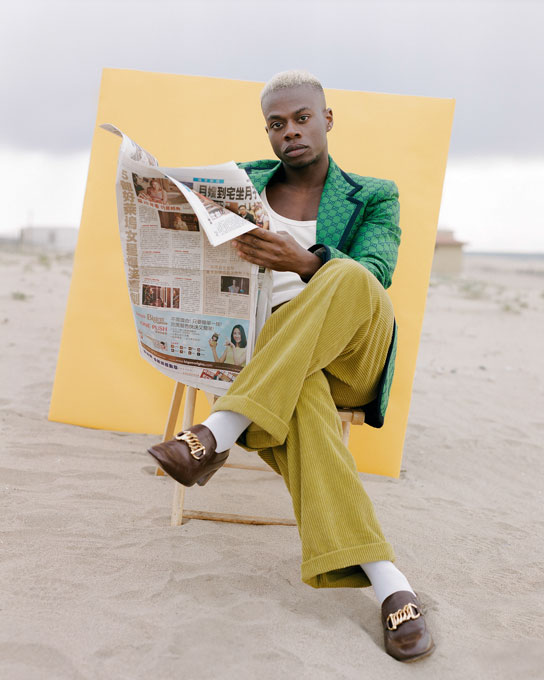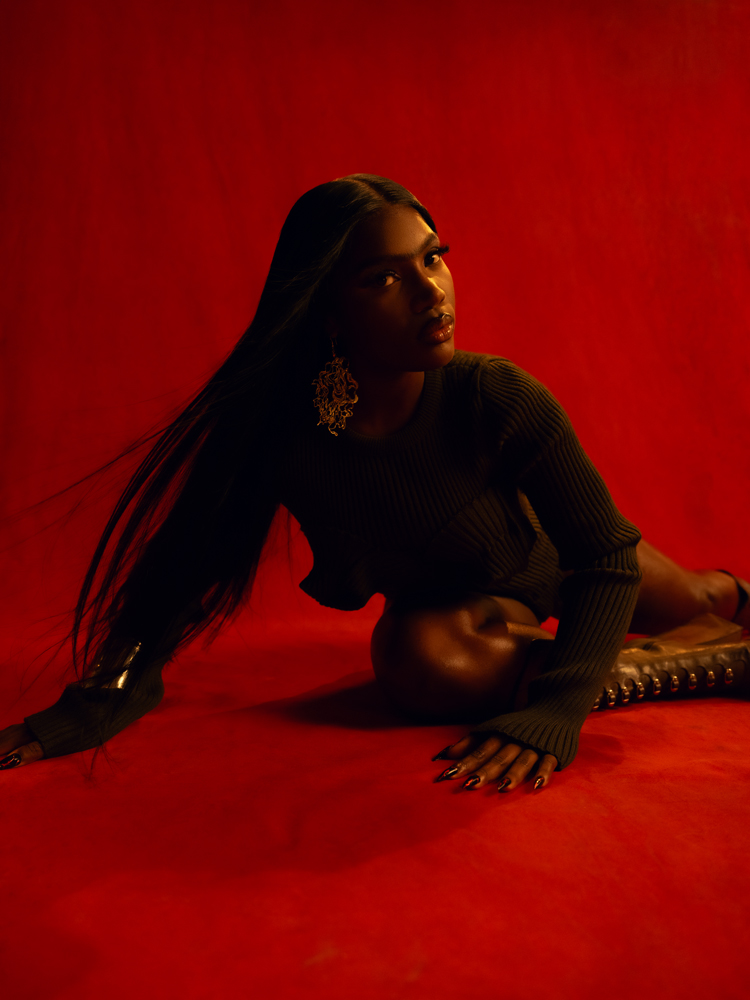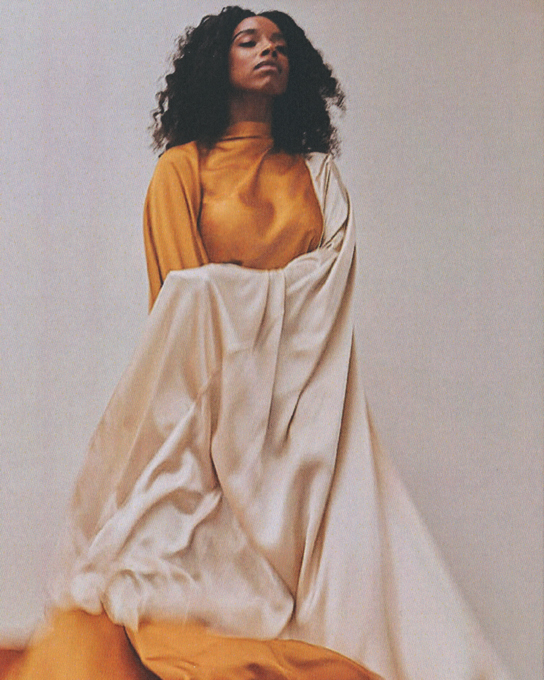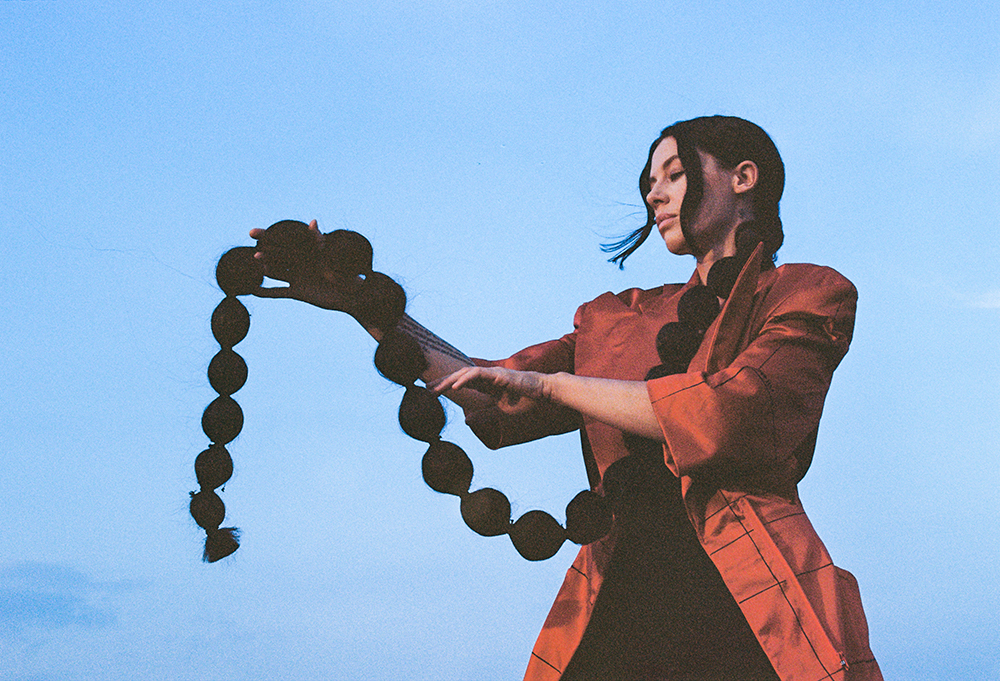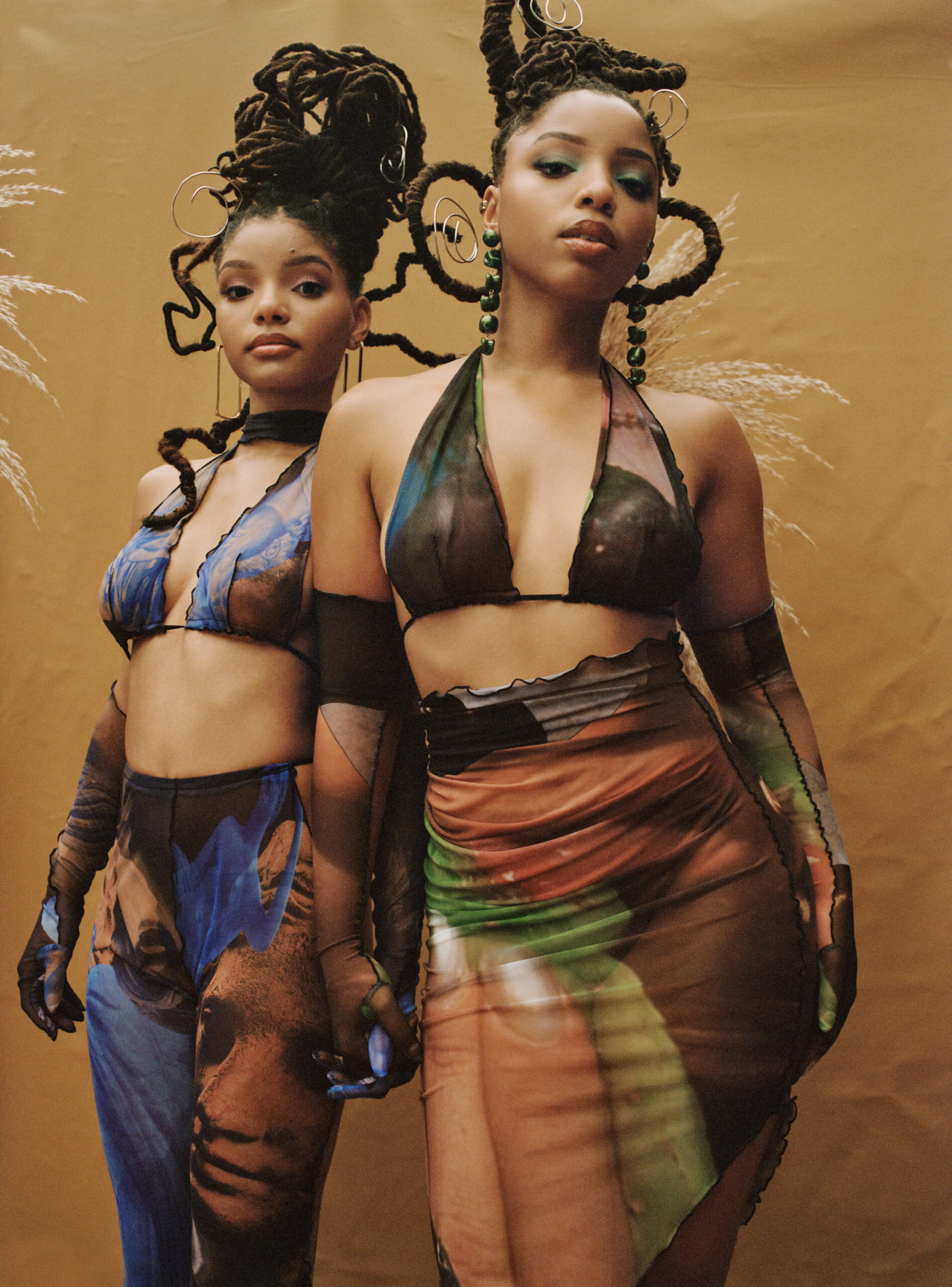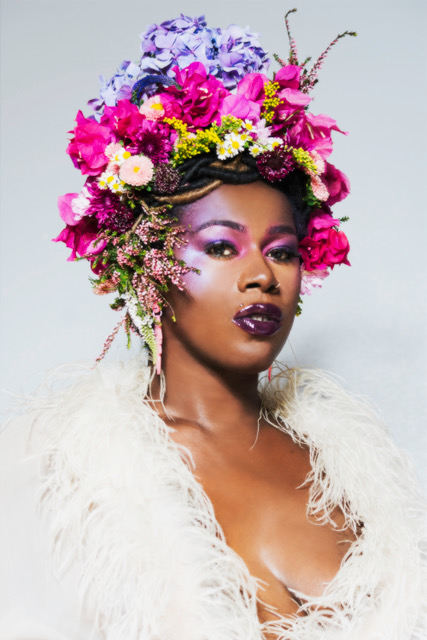METAMORPHOSIS ISSUE 14
COSIMA
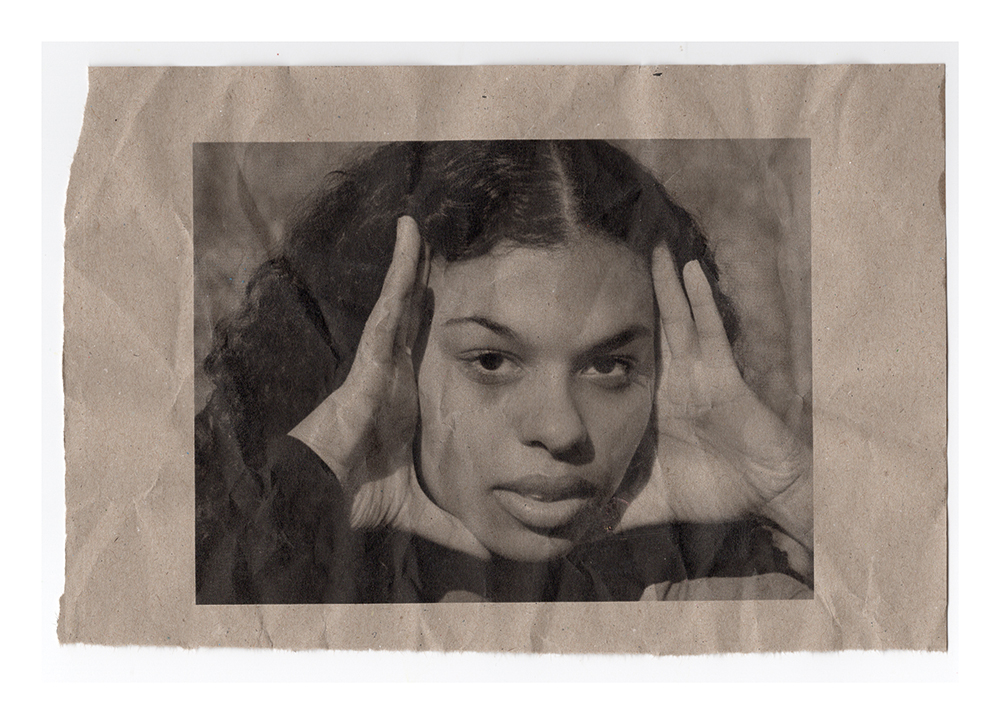
INTERVIEW BY TENESHIA CARR
In the face of the global pandemic, British songstress Cosima embraces her usual hermit mode as it helps her to fulfill her creative pursuits. Within her home and studio walls, she nurses her artistry in producing and writing songs that echo her listeners' stories while comforting her soul.
Growing up in the close-knit community of Peckham, South London, she could overhear intimate narratives commingled with neighborhood sounds. The closeness of homes allowed her to listen to the vacuum running upstairs, the cries and woes of a neighbor downstairs. Accumulating bits and moments of overheard lives has allowed Cosima to take the focus off of herself in her music. Her music resonates well with her listeners. "When I listen to music, if I see myself in the song, that is when I am moved by it."
As the songstress speaks to Blanc Magazine, her aura of unraveling pervades through her storytelling. For Cosima, art is not a transitory phase but a practice to live by. For instance, she has dived deeper into the realms of the industry as she founded her own label and strives to continue making music that provokes rawness and honesty. As she sanctifies commercial viability with art that invokes her roots and heart, referencing Judy Garland and Louis Armstrong along the way, she dips into the healing springs of music, diffusing the croon of her voice that acts as an elixir to the globalized era.

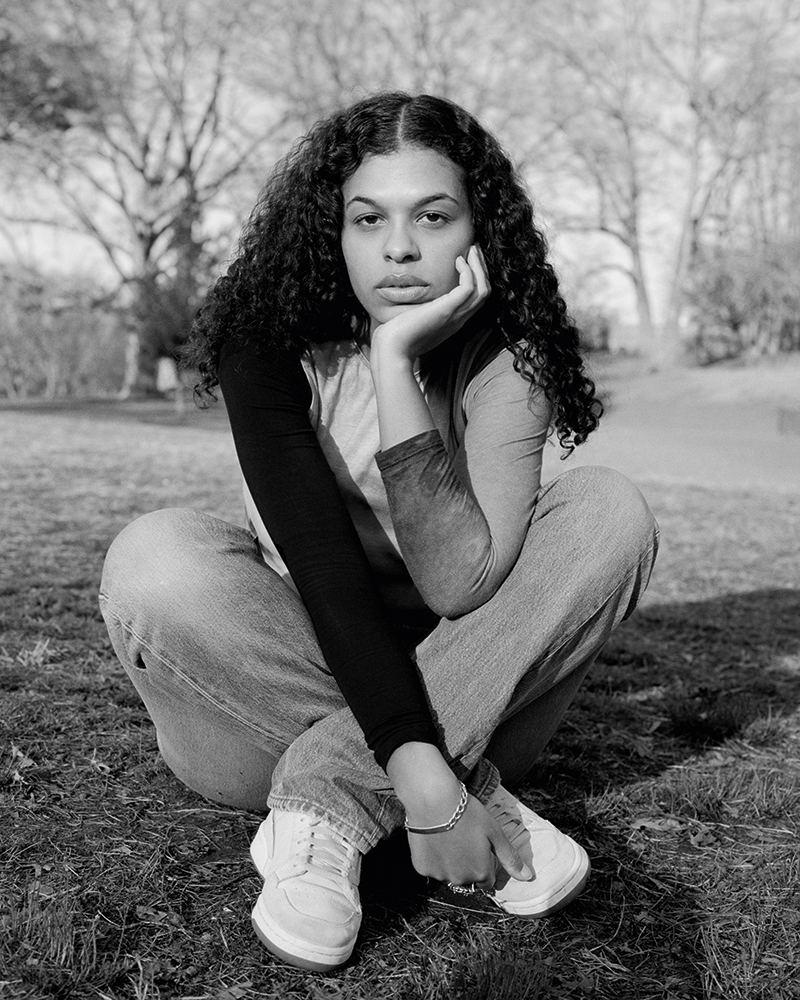
TC: Do you feel over the past year, with the social distancing, has it affected how you think about the things you used to do that were just completely normal?
Cosima: It's funny because I've always been a bit of a hermit, so...
TC: Me too. I love it. I'm a recluse. I love being in the house.
Cosima: Same. I think that's really interesting. I'm very much like studio, home, anything that's to do with work and then home because that's just what fulfills me. Making art fulfills me so much that I've never really had that burning need for anything outside of it, which I don't know if that's a good thing or a bad thing or something I need to speak to my therapist about, probably all of those things. I think it's made me think more about empathy, and it's been really interesting seeing people discovering that there are all these people that kind of have had to live in a certain way for a really long time. Even with last summer when almost everyone was like, oh my gosh, like racism, like that's a thing.
TC: Right. We've been trying to tell you for decades. Help us!
Cosima: Yeah. So I don't need an infographic for my lived experience. That's been interesting, seeing some people genuinely waking up to, even in the UK, the fact that a lot of children live below the poverty line. It shocked me that so many people were so surprised by that. In some ways seeing a certain type of empathy being unlocked in people, but then in other ways, seeing a complete lack of it. So I think that's been the thing I've been thinking about the most.
TC: What has your working process been like this year? How have you changed your language or how you relate to people?
Cosima: My communication of ideas and thoughts has improved a lot. Even if you're working with producers, you couldn't sit with anyone, so you can't sit next to someone and go through a thousand sounds to try and sum up a feeling. You have to be much more direct. I think that's something that I always struggled with. I'd be like, it feels like this, or it should sound like this, or it's this type of thing. And even with creative, I've had to learn how to distill things down into a sentence where you just say exactly what you're going for.
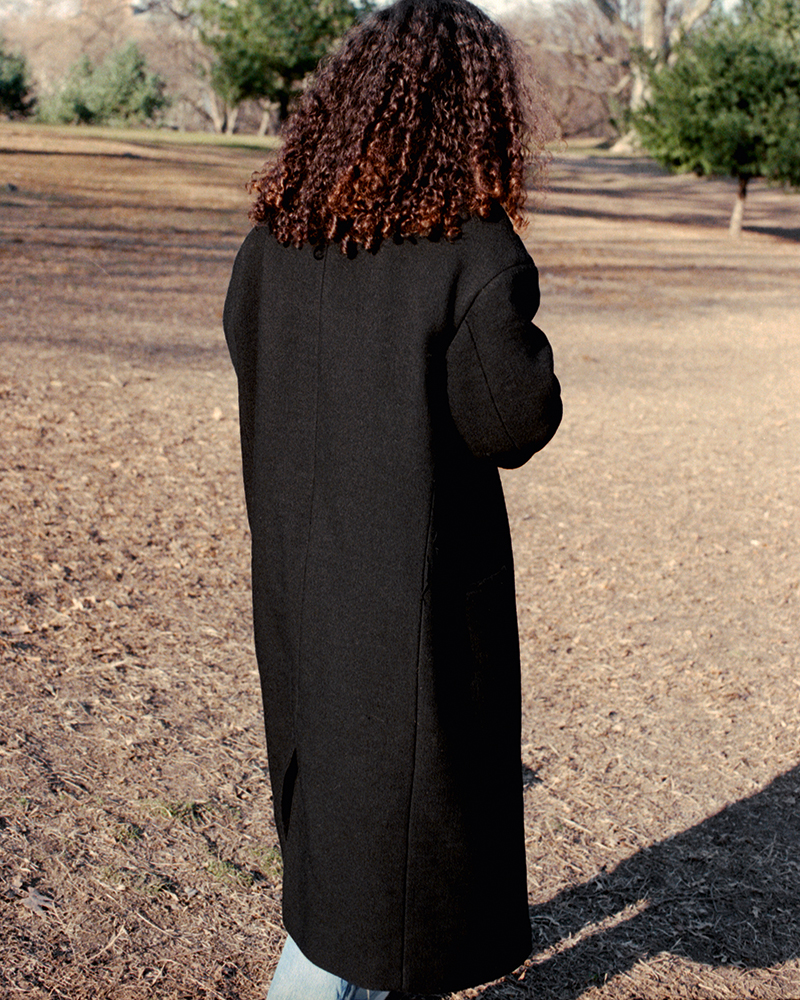
TC: Tell me about your childhood. What was it like?
Cosima: I grew up in London, and on my mom's side, I'm half German, so we've spent a lot of time with my mom's family as well in Germany.
TC: Well, what was it like growing up for you there in London?
Cosima: I grew up in Peckham, which is a super mixed part of London. I don't know if I enjoyed it at the time, but I think looking back on it, I was very grateful to grow up here because you just see so many different kinds of realities. And I think that's again why it always surprises me when people are shocked by realities that have always existed. I think you also know the scope for human emotion and human pain, but you also see how similar the core feelings are. Just being around so many different kinds of people, hearing different types of music, but in a really personal way, because you all live so close together that whatever someone's cleaning to upstairs, you can hear it, and whatever someone's crying to downstairs you can hear that too. It's almost like you're constantly eavesdropping on each other and overhearing parts of people's conversation. I think that's probably influenced me so much as a storyteller.
TC: So what was your first musical memory? Do you remember when you first felt like you loved music?
Cosima: We used to clean the house with my mom on a Sunday, and I remember distinctly there was a Louis Armstrong song that intrigued me because I'd never heard a voice like that. So I think I walked around the house trying to copy whatever sounds he was making. And then it was an Afro-Cuban All-Stars CD as well. When I hear those records, I can smell bleach. There's certain music when you listen to it, so subconsciously, so early, it just lives in you as part of your DNA.
TC: When did you think this is something that I need to do. I need to make music. I need to express myself in this way?
Cosima: I realized that singing was a release for me when I discovered Judy Garland because I think I was like 12 or 11 and my friend gave me a CD, and I remember just hearing her voice, and there's one song she sang called (Dear Mr. Gable) You Made Me Love You, and it just was so, I don't know, there's just something about her voice that just moves you. And I remember just always singing along to that. And then that's when I knew that singing was something special to me. And then, throughout my teens, it became something that got clearer and clearer.
When I was like 18, I was like, okay, I need this. I need to do this as much as possible. It's just something I love doing. And then I always veered more and more to it. It was less of a career decision, more of a, how can I get to a place where all my hours in the day are just focused on this.
TC: Tell the Blanc audience about your music. What is it like, and what should they feel when they listen to it?
Cosima: I think it's very honest, and I think the sound kind of changes a lot, but I always try to keep that as pure and as honest as possible in terms of my voice and lyrics. I would hope they would just feel because I think you can read anything into a song. I believe how people take in songs is very much about them, less about what the artist is trying to say. When I listen to music, if I see myself in the song, that's when I'm moved by it. So I would hope they would just feel. Most of the time, when I talk to people about my music, it gets very emotional.
TC: Really?
Cosima: Yeah. Yeah.
TC: Where does that emotion come from? Does it come from life experience, or does it come from just actually creating the work?
Cosima: It definitely comes from life experience. Sometimes I wish it came from something more abstract or when you imagine stories about things. Music is like finding ways to deal with what life is and finding ways to celebrate what life is because something terrible can happen. But if you write a beautiful song about it, it's like you've given yourself, the you that was in that situation, a gift where it's like here, this is your story. I've told it.
TC: Can you name a point in time or something that has happened to you that has deeply changed you?
Cosima: I feel like my life has been lots of points of change. I always refer to life as boxing. It happens in rounds. My dad was also a boxer, so that's just how I think.
TC: Mine too.
Cosima: Yeah, so that's how I think about life. I think it's like rounds. So I guess a change happens in between every round. So you have to do your laid out on the floor cry, which is what I always do. And then I go into the next round. I'm trying to think of a specific moment.... even just before deciding to start my record label and accept the challenges of freedom.
That was a big change because there had been points before then when I guess I just felt like I was in a corner that I couldn't get out of. When I'm cornered is usually when I figure out.
TC: Why did you start your own record label?
Cosima: Every artist has a different formula that works for them. I think you have to know in your soul what works for you specifically. I've always been someone that's chosen freedom to be myself over the comfort of maybe a situation where I don't have that same type of freedom. I'm a musician, I put out music, and everything is bound up in something commercial. But for me, the first commercial viability isn't my top priority. My top priority is putting art into the world that I'm proud of. And it's so personal that I just would like to own it. Yeah. That, for me, is the biggest thing, just owning my art and not even for financial reasons, just for artistic reasons.
I'm an artist for better or for worse, I guess.
TC: What are your musical influences?
Cosima: So many, I'm so bad at listing them because I would just go on forever and ever. The most formative ones, I guess, or singers like Nancy Wilson, obviously Judy Garland, Barbara Streisand, Sammy Davis, Jr. Just anyone that communicates feeling because I think that's always been one thing, I love when someone is technically amazing, but for me, what moves me is if they're technically amazing and they really communicate a feeling, or if they just communicate emotion with the tools that they have. If that's like two notes of a range and they can communicate emotion with that, that inspires me.
TC: Tell me about your new music.
Cosima: It's very personal. And it's a body of work that's like me saying farewell to a time and it's called The Fun Is Here? But with a question mark, because it's about the constant search for happiness outside of yourself. And of course, you never find that because you can't find happiness somewhere else. You have to figure out what's going on inside. And the project is about me trying to figure that out.
TC: What kind of artist do you hope to be in 10 years?
Cosima: In 10 years, I hope to be the kind of artist who can look around and maybe just know that the music I've made has moved people. Some artists I have in my life that I've looked up to where I've heard a song by them and just because I've heard that song, I want to go and write a song, or I want to make music, or I want to go and revisit what I do and make it better. And I think those are the artists who didn't have to touch everyone in the world, but the people they do touch, they inspire action in them, and that's the kind of artist I would want to be.
PHOTO CREDIT
Maxime Cardol



